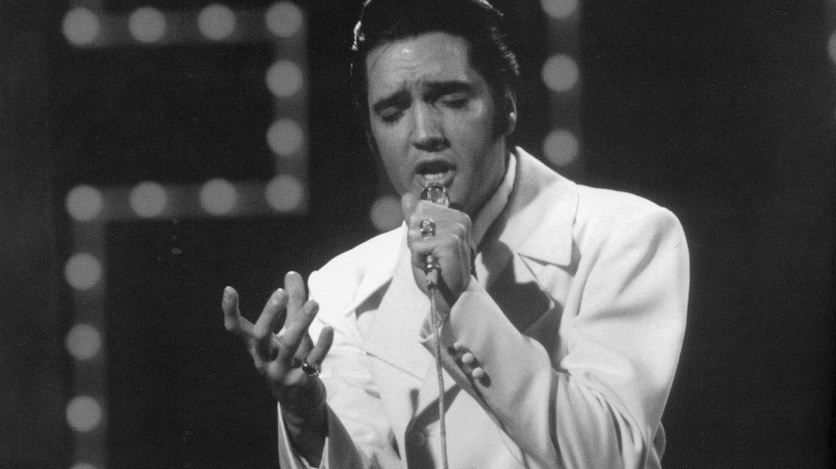“Roustabout” by Elvis Presley stands as a vibrant testament to the King of Rock ‘n’ Roll’s enduring legacy in the music industry. Released in 1964, this dynamic track not only showcases Elvis’s vocal prowess but also encapsulates the energetic spirit of the era.

The making of “Roustabout” coincided with its role as the title track for the musical film of the same name. In the movie, Elvis portrays a motorcycle-riding carnival worker, and the song serves as a perfect sonic backdrop to the film’s lively atmosphere. Its upbeat tempo and lively instrumentation capture the essence of the carnival setting, infusing the narrative with excitement and energy.
Upon its release, “Roustabout” quickly ascended the charts, securing a spot in the top 10 of the Billboard Hot 100. Elvis’s charismatic delivery, coupled with the song’s infectious rhythm, contributed to its widespread popularity, solidifying its status as a classic in the King’s repertoire.

Musically, “Roustabout” showcases Elvis’s brilliance in blending diverse styles. The song effortlessly fuses elements of rock, pop, and a touch of country, highlighting Elvis’s versatility as an artist and his ability to push musical boundaries. His commanding vocals and the energetic instrumentation create an irresistible sonic experience that captivates listeners.
Decades after its release, “Roustabout” continues to resonate with audiences worldwide, underscoring Elvis Presley’s enduring influence on the music industry. Its enduring appeal serves as a testament to the King’s ability to create timeless pieces that transcend generations, leaving an indelible mark on music history.
Moreover, “Roustabout” played a significant role in Elvis’s cinematic journey, contributing to his multifaceted career as both a musician and an actor. The success of the film and the song further solidified Elvis’s position as a cultural icon, cementing his legacy in both the music and film industries.
In essence, “Roustabout” remains a vibrant symbol of Elvis Presley’s musical brilliance and cultural impact, continuing to captivate audiences with its infectious energy and timeless charm.
Video:
Elvis Aaron Presley, often referred to as the “King of Rock and Roll,” was born on January 8, 1935, in Tupelo, Mississippi, USA. He rose to prominence in the mid-1950s, becoming one of the most iconic and influential figures in the history of popular music. Presley’s musical journey began at an early age when he started singing in church and listening to various genres of music, including gospel, blues, and country. In 1954, he signed a recording contract with Sun Records, where he began his career blending elements of rockabilly, rhythm and blues, and country music. His breakthrough came with the release of his first single, “That’s All Right,” followed by a string of hits such as “Heartbreak Hotel,” “Hound Dog,” and “Jailhouse Rock.” With his charismatic stage presence, distinctive voice, and provocative dance moves, Presley captured the hearts of audiences worldwide, revolutionizing the music industry and popular culture. Presley’s impact extended beyond music; he also found success as an actor, starring in a series of films throughout the 1960s. Despite his commercial success, he faced criticism from some quarters for his crossover into mainstream entertainment and the perceived dilution of his musical authenticity. Throughout his career, Presley struggled with the pressures of fame, leading to personal challenges, including substance abuse and health issues. Despite these obstacles, he remained a beloved figure, revered for his contributions to music and his enduring legacy. Tragically, Elvis Presley passed away on August 16, 1977, at the age of 42, leaving behind a legacy that continues to resonate with generations of fans. He was posthumously inducted into the Rock and Roll Hall of Fame, and his music remains a timeless testament to his enduring talent and cultural impact

